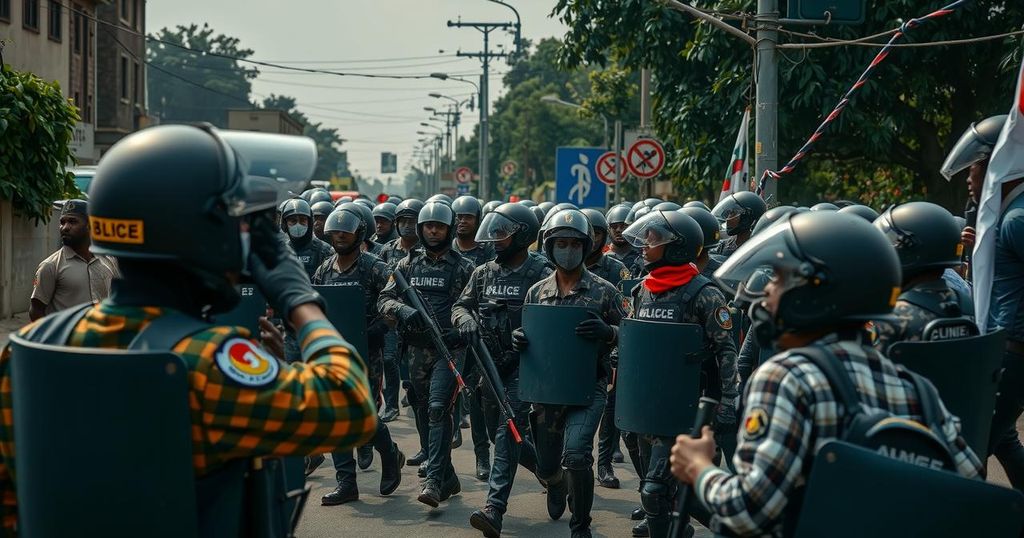During the #Endbadgovernance protests in Nigeria from August 1-10, 2023, police used excessive force resulting in at least 24 deaths and over 1,200 arrests. Eyewitness accounts and Amnesty International’s report highlight serious human rights violations, including the use of live ammunition against peaceful protesters. The Nigerian government’s response has raised concerns over accountability and the rights to free assembly and expression.
Between August 1 and August 10, 2023, widespread protests erupted in Nigeria under the hashtag Endbadgovernance, sparked by rising living costs and pervasive corruption. In a disturbing turn of events, the Nigerian police employed excessive force against demonstrators, resulting in the deaths of at least 24 individuals and the detention of over 1,200 people, including minors. Amnesty International’s recent report highlights that law enforcement officers employed live ammunition, often targeting the head or torso, indicating a lethal intent to silence dissent. Eyewitness accounts describe a significant shift from peaceful gatherings to violence following police interventions, which included tear gas and live bullets, violating international human rights norms. The Nigerian authorities’ failure to acknowledge these actions raises pressing questions about accountability and the right to peaceful assembly.
Amnesty International’s findings reveal a concerning pattern of human rights abuses during the protests. Victims ranged in age from children to the elderly, with accounts of police brutality reported in numerous states, including Kano, Kaduna, and Jigawa. Activists and those supporting the protests faced severe repercussions, including torture and arbitrary detention, as reported by survivors like Khalid Aminu and Michael Adaramoye. The police’s consistent denial of involvement in the fatalities and dismissals of the eyewitness reports have perpetuated a crisis of impunity, further eroding public trust in law enforcement agencies. Internationally recognized standards dictate that police must only use firearms in situations where lives are at imminent risk, yet these protocols seem to have been grossly disregarded during the protests.
The backdrop of these events includes a growing discontent among Nigerians over rising costs of living and systemic corruption, which spurred the protests. Demonstrators sought to voice their grievances, yet faced a crackdown that has significantly stifled freedom of expression and assembly. The portrayal of protesters as threats has led to an environment where dissent is met with violence, prompting calls for an independent investigation. Amnesty International emphasizes the need for accountability and justice for victims to dismantle the cycle of violence and ensure compliance with national and international human rights obligations.
The #Endbadgovernance protests in Nigeria originated from public dissatisfaction with worsening economic conditions and governmental corruption. As the situation escalated from August 1 to August 10, 2023, participants faced intense backlash from law enforcement, leading to severe human rights abuses. Reports indicate that the police retaliated against peaceful demonstrations with lethal force, a move that starkly contradicts international guidelines on the use of firearms by law enforcement. The violent response to civil expression and the ensuing denial of state accountability represent systemic issues within Nigeria’s governance, highlighting the urgent need for reform and protection of civil liberties.
In summation, the violent crackdown on the #Endbadgovernance protests in Nigeria underscores a grave disregard for human rights by state authorities. The tragic loss of lives and abuse of demonstrators reveals an alarming pattern of governance that prioritizes suppression over accountability. For meaningful change to occur, it is imperative that the Nigerian government conducts thorough investigations into these abuses and addresses the systemic issues that lead to such violations of citizens’ rights. Without action, the cycle of impunity will persist, further undermining public trust and the right to peaceful protest.
Original Source: www.amnesty.org






